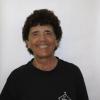I belong to a religious community of sisters. Every year we set aside three days for reflective contemplation stimulated by a guest speaker. The guest speaker is always a theologian, a Scripture scholar, a famed director of souls. Never, in all my years of faithful attendance, have we ever invited a novelist or poet to inspire our reflections.
No Meryl Streep appears on community day, although she played a Sister in "Doubt," the 2008 film version of John Patrick Shanley's drama. Surely Meryl Streep would have some insights about our lives with one another, about differing viewpoints in community, about how our individual histories impact our daily choices. Each of us comes to religious life with a personal story. A conversation with Streep's character "Sister Aloysius" might be enlightening.
No Elizabeth Stout appears at our community gatherings either. The author of Olive Kitteridge actually spends informal time generously talking to each person she meets after her talks. And what about her stories? We see Olive, a gentle doting mother soothing her sick child, turn over the years into a cramped, abrasive critic. We wonder how this happened, especially since her husband is the kindest of men. Do we find traces of Olive in ourselves? See the slightest softening when a former student praises her, when she helps him save a drowning waitress? Do we relate to Henry, her kind husband? Do we hear the words choose: critical or compassionate, as if from the mouth of a retreat director?
Sometimes the poet Mary Oliver, herself, sounds like a spiritual director:
To live in this world
you must be able
to do three things:
to love what is mortal;
to hold itagainst your bones knowing
your own life depends on it;
and, when the time comes to let it
go,
to let it go.
When was the last time we wrapped ourselves around a poem? Do we save poetry for special events like weddings and funerals, trusting it will convey our deepest feelings? Why not sit quietly with those feelings every day of our lives? Every day of her life Mary Oliver is out on the sand dunes or down in the Florida glades engaged in contemplative reflection.
When it's over, I want to say all my life
I was a bride married to amazement. …I don't want to end up simply having visited this world
Tell me, what is it you plan to do
With your one wild and precious life?
Cheryl Strayed knows what she must do with the rest of her life. Wild is a biography, but it reads like a novel. This lends credence to what we might think unbelievable — that a woman with no experience hiking, no idea of gear, maps, directions, or dangers in the wild would set out to walk the Pacific Crest Trail from California to Washington State. Alone. She tells her audience that she is a penitent trying through physical exertion to set things right in her life, to make amends, to mourn the loss of her mother. She changed her last name to Strayed, she says, to match her moral state. She encourages each of us to tell our stories, to note our own need for mercy, to consider the physical nature of redemption.
I like mystery novels, as well, especially those written by the Canadian Louise Penny. Most of the action centers on a long forgotten town called Three Pines where most of the characters live — two artists, a bookstore entrepreneur, a disturbed poet who befriends geese, the detective Gamache and his wife, Renee Marie, and two gay men who run a bed and breakfast and the cafe where the locals enjoy conversation and gourmet meals. Sometime or other meals are shared in the cafe or in someone's home. Of course there is a murder to be solved, and a host of other characters both from Three Pines and from official police headquarters in Quebec. There is a Catholic church in town where people go to enjoy the quiet, but most share bread in informal ways.
In the end, culprits are caught and mysteries solved, which is reassuring. Perhaps life's mysteries will in time also be solved or at least put in perspective. Maybe some turn out not to be so mysterious after all. But people sharing a meal remains, showing the bridge we must make between the Eucharistic table and the dining room one. No theologian needs to remind us. Just ordinary people living it.
Perhaps that is what novels like these do best. We see Biblical characters in contemporary dress. Is Cheryl Strayed really so different from King David — adulterers turned penitents? Is Olive's husband, Henry, not like the Good Samaritan in the story Christ told? Fiction and poetry hold a mirror up to ourselves, show us who we are and who we might be. We are characters in a book called Life. We face moral dilemmas, grow in grace, and recognize choices writ large in stories. We are shining, faltering human beings. As the poet Leonard Cohen says:
There is a crack in everything. That's how the light gets in.
Sadly, we cannot invite Lennie to community day. He recently passed into the eternal light.
[Joan Sauro, a Sister of St. Joseph of Carondelet, publishes widely in the Catholic press. Her new book is titled We Were Called Sister. Her essay of the same name was awarded first place for Best Essay 2014 by the CPA.]
